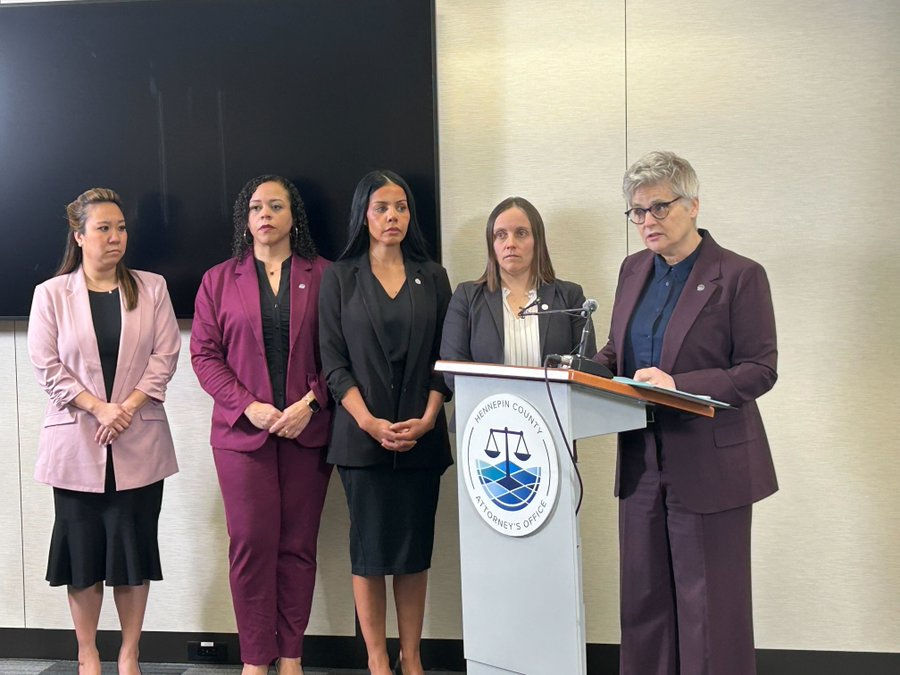What to do if you’re worried about lead poisoning
- CBJ Staff
- Dec 8, 2023
- 3 min read

Friday morning, a small group of people crowded the entrance to Care 4 All on Payne Avenue in East Saint Paul, filling out forms so that they could get their blood tested for possible lead poisoning. The lab has partnered with the East Side Neighborhood Development Company (ESNDC), which is offering four free drop-in clinics this month for anyone interested, regardless of whether they have health insurance.
Marsha Allen is a lead educator for ESNDC’s. She says in past years people didn’t take advantage of the free blood testing, but recent news that some St. Paul homes are seeing higher lead levels in their water has bumped up interest. She also recommends people get their water tested with a free kit from Saint Paul Regional Water Services.
“If your water comes back negative, but your blood comes back positive, there could be something in the home that has lead paint, especially if you're living in a home that was built before 1978,” said Allen.
In addition to paint and lead pipes, Allen says leaded and stained glass windows can be a source of contamination.
“And there could be other things too. In our community, the Asian and Latino community, we get a lot of stuff that is imported – the East African community, as well. Some of those items may not be regulated, so they may have lead.”
Common foreign sources of lead include bulk spices, cosmetics and ceremonial powders, candy from Mexico and Asia, jewelry and ceramics.

Allen says while East Saint Paul is one of the most diverse neighborhoods in the city, that’s not reflected in who is showing up for blood tests.
“There is a huge disparity. The majority of the folks that are coming in – they're white. There has to be a lot more outreach.”
ESNDC Program Director Laura Clouser says one of the biggest challenges is making sure they are educating all ethnic groups in the community about the dangers of lead poisoning.
“We are building collaborations with community organizations that serve diverse ethnicities, like the Hmong and Karen Organizations, CLUES who works with Latinos, refugee organizations who work with new immigrants, and Head Start. We partner with Ramsey County Head Start and assist on home visits when their clients are concerned about lead. We use interpreters and staff that are bilingual to navigate language barriers.”
Clouser says if you live in a house or apartment built before 1978, there is a good chance there is lead in the home. And it doesn’t take much to cause serious harm.
“If you had a small sugar packet – like the ones people use for coffee – if this packet was lead and was opened and spread on a table, one grain is enough to poison a child. Children under six years old and pregnant women are the most susceptible to lead poisoning due to its effects on the developing brain. When a pregnant woman is exposed to lead the lead can affect the unborn fetus.”
According to the Minnesota Department of Health, “Drinking, breathing, eating or touching food, water and other materials that contain lead can damage the brain, kidneys, and nervous system. In children, lead can also slow development or cause learning, behavior, and hearing problems.”
Clouser says if a child is exposed to lead, there are ways to bring the blood lead levels down. If you are not sure whether you are being exposed to lead, she recommends you call ESNDC to schedule a free in-home lead assessment. ESNDC also offers free presentations on lead hazards, a deep lead cleaning service for both homeowners and renters, and provides referrals to a lead window replacement program.
ESNDC is offering two more drop in clinics this year for blood tests at the Care 4 All lab at 925 Payne Avenue. They are on Wednesday, Dec 20 from 10:30 a.m. - 12:30 p.m. and on Friday, Dec 22 from 10:30-11:30 a.m. and again from 3:30-4:30 p.m.



Comments